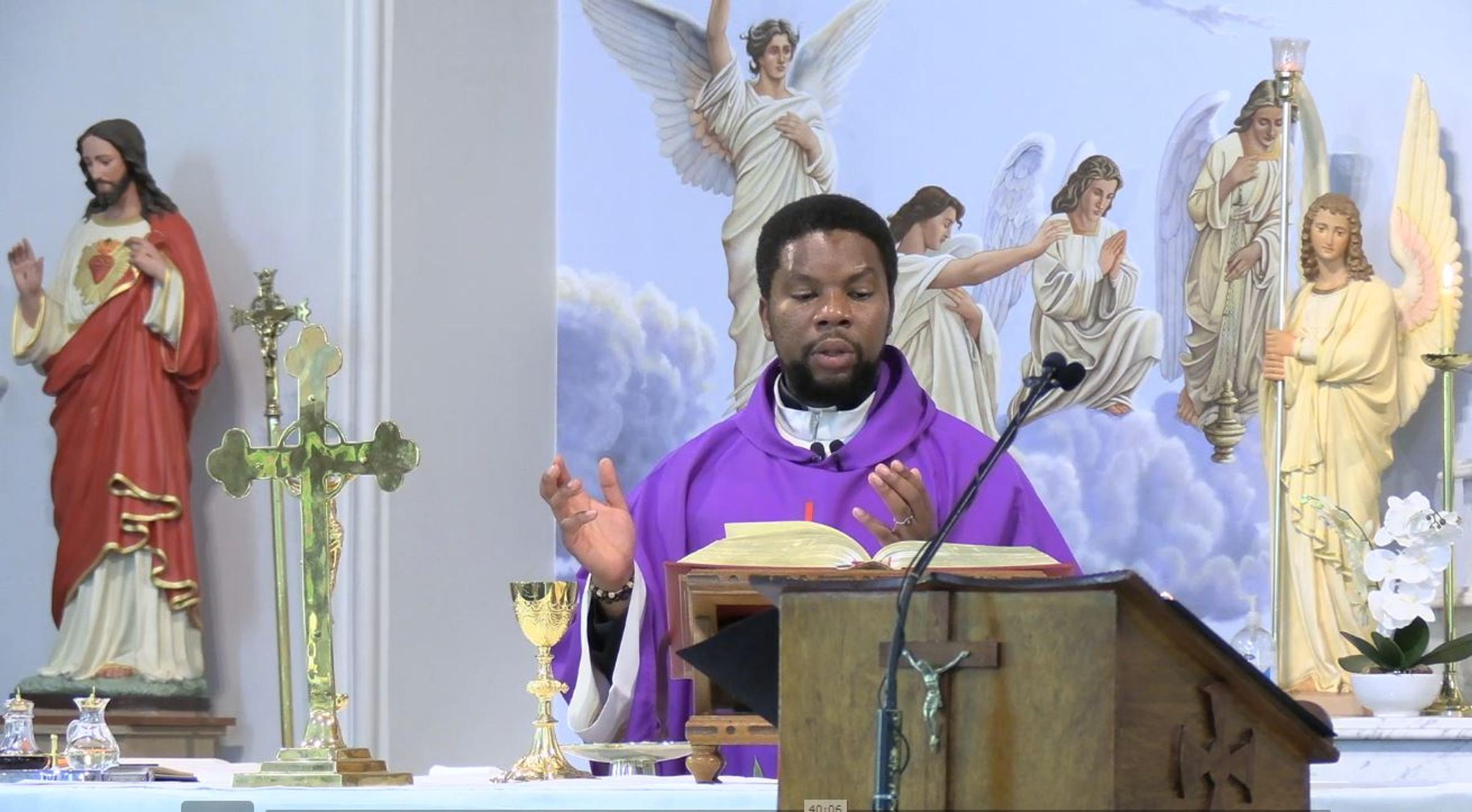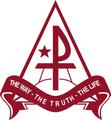College Chaplain

Onward Journey with Jesus
Dear friends,
As we continue our Lenten journey, it will be good to refresh our minds with what lent is all about. So, I present some questions and answers written by James Akin that may help us appreciate more what we are doing.
Q: What is Lent?
A: Lent is the forty days before Easter, excluding Sundays, which begins on Ash Wednesday and ends on Holy Saturday (the day before Easter Sunday). [This traditional enumeration does not precisely coincide with the calendar according to the liturgical reform. To give special prominence to the Sacred Triduum (Mass of the Lord's Supper, Good Friday, Easter Vigil), the current calendar counts Lent as only from Ash Wednesday to Holy Thursday, up to the Mass of the Lord's Supper. Even so, as before, Lenten practices are properly maintained up to the Easter Vigil, excluding Sundays.]
Q: Why are Sundays excluded from the reckoning of the forty days?
A: Because Sunday is the day Christ arose, it is inappropriate to fast and mourns our sins. On Sunday, we must celebrate Christ's resurrection for our salvation. It is Friday on which we commemorate his death for our sins. The Sundays of the year are days of celebration, and the Fridays of the year are days of penance.
Q: Why are the forty days called Lent?
A: They are called Lent because that is the Old English word for spring, the seasons of the year during which they fall. This is something unique to English. In all other languages, its name is a derivative of the Latin term Quadragesima, or "the forty days."
Q: Why is Lent forty days long?
A: Because forty days is a traditional number of disciplines, devotion, and preparation in the Bible. Thus Moses stayed on the Mountain of God for forty days (Exodus 24:18 and 34:28), the spies were in the land for forty days (Numbers 13:25), and Elijah travelled forty days before he reached the cave where he had his vision (1 Kings 19:8), Nineveh was given forty days to repent (Jonah 3:4), and most importantly, prior to undertaking his ministry, Jesus spent forty days in the wilderness praying and fasting (Matthew 4:2).
Since Lent is a period of prayer and fasting, it is fitting for Christians to imitate their Lord with a forty-day period. Christ used a forty-day period of prayer and fasting to prepare for his ministry, culminating in his death and resurrection. Thus it is fitting for Christians to imitate him with forty days of prayer and fasting to prepare to celebrate his ministry's climax, Good Friday (the day of the crucifixion) and Easter Sunday (the day of the resurrection).
Thus, the Catechism of the Catholic Church states:
"'For we have not a high priest who is unable to sympathize with our weaknesses, but one who in every respect has been tested as we are, yet without sinning' [Heb 4:15]. By the solemn forty days of Lent the Church unites herself each year to the mystery of Jesus in the desert." (CCC 540).
Q: When does Lent begin?
A: Lent begins on Ash Wednesday, the day the faithful have their foreheads signed with ashes in the form of a Cross. It is also a day of fasting and abstinence.
Q: What is a day of fasting and abstinence?
A: Under current canon law in the Western Rite of the Church, a day of fast is one on which Catholics who are eighteen to sixty years old must keep a limited fast. In this country, one may eat one meal and have two snacks, so long as these snacks do not add up to a second meal. Children are not required to fast, but their parents must ensure they are adequately educated in the spiritual practice of fasting. Those with medical conditions requiring a greater or more regular food intake can easily be dispensed from their pastor's fasting requirement.
A day of abstinence is a day on which Catholics fourteen years or older are required to abstain from eating meat. Again, their pastor can easily dispense people with special dietary needs.
Q: In addition to Ash Wednesday, are any other days during Lent days of fasting or abstinence?
A: Yes. All Fridays during Lent are days of abstinence. Also, Good Friday, the day Christ was crucified, is another day of fasting and abstinence. All days in Lent are appropriate for fasting or abstaining, but canon law does not require fasting on those days. Such fasting or abstinence is voluntary, like a freewill offering.
Q: Why are Fridays during Lent days of abstinence?
A: This is because Jesus died for our sins on Friday, making it an especially appropriate day of mourning our sins (just as Sunday, the day on which he rose for our salvation, is an especially appropriate day to rejoice) by denying ourselves something we enjoy. During the rest of the year, Catholics in this country are permitted to use a different act of penance on Friday instead of abstinence. However, all Fridays are days of penance on which we are required to do something expressing sorrow for our sins, just as Sundays are holy days on which we are required to worship and celebrate God's great gift of salvation.
Q: Are acts of repentance appropriate on other days during Lent?
A: Yes. Thus, the Code of Canon Law states:
"All Fridays through the year and he time of Lent are penitential days and time throughout the universal Church" (CIC 1250).
Q: What are appropriate activities for ordinary days during Lent?
A: Giving up something we enjoy for Lent, doing physical or spiritual acts of mercy for others, prayer, fasting, abstinence, going to confession, and other acts expressing repentance in general.
Q: Is the custom of giving up something for Lent mandatory?
A: No. However, it is a salutary custom, and parents or caretakers may require it of their children to encourage their spiritual training, which is their prime responsibility in raising their children.
Q: Aside from Ash Wednesday, which begins Lent, what are its principal events?
A: Various saints' days fall during Lent, and some of these change from year to year since the dates of Lent itself change based on when Easter falls. However, the Sundays during the Lenten season commemorate extraordinary events in the life of Our Lord, such as his Transfiguration and his Triumphal Entrance into Jerusalem on Palm Sunday, which begins Holy Week. Holy week climaxes with Holy Thursday, on which Christ celebrated the first Mass, Good Friday, on which he was Crucified, and Holy Saturday—the last day of Lent—during which Our Lord lay in the Tomb before his Resurrection on Easter Sunday, the first day after Lent.
Copyright (c) 1996 by James Akin. All Rights Reserved.
